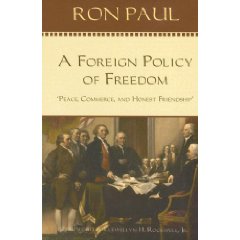 Deceptive Beginning, Vital Middle, Disappointing End,
Deceptive Beginning, Vital Middle, Disappointing End,
May 5, 2007
George Tenet
This is a very good book. There are some extremely important nuggets in here that essentially put the final nail in Dick Cheney's coffin while certifying the importance of holding Rumsfeld, Wolfowitz, Feith, and Cambone accountable for their high crimes and misdemeanors. Condi Rice continues to be depicted, in this book and others, as a zero in the sense of having been ignored, sidelined, or run over by Dick Cheney and his minions.
The book loses one star for a lack of prior context. George Tenet was Staff Director of the Senate Select Committee on Intelligence (SSCI) for many years, and then Intelligence Director for Bill Clinton. He avoids any mention of his long-standing role in helping dismantle the very IC he ended up leading, and he is terribly deceptive when he says he asked for more funding for anti-terrorism, but fails to mention his inability to redirect funds within the $35-40 billon he had at the time. Today the IC has $60-70B and we are no safer–these clowns cannot even put together a consolidated accurate terrorist watchlist five years after 9/11.
The bottom line on the author is that he is a big-hearted staffer, not a leader and not a strategic thinker. He was a place-holder in a job that two presidents saw fit to relegate to losers–a mouse, a pit-bull, and a turtle.
He takes credit for months of redesign dialog but fails to point out that there was no substantive contact with iconoclasts, published author-practitioners. I am especially angry that he placed Buzzy Krongard in as Executive Director. In my view, Krongard was there to look out for Wall Street interests and ensure Brown and Root did not get caught smuggling drugs into the USA through New Orleans and heavy equipment being returned to the USA “for repairs.” I've come to the conclusion, after thirty years in this business, that there are four CIA's: 1) White House sychophants; 2) Wall Street support via Carlyle Group and a small network of retired intermediaries; 3) the “front” of earnest people working out of official installations, incapable of actually doing serious spying (I was part of this group); and finally, a multinational “dirty deeds” arm that does terribly immoral and illegal things with Saudi money, Egyptian sodomy of children (photographed so as to force them to spy on their fathers), and so on.
In many ways, this book is a capstone account of the death of US secret intelligence. It's gone. The DNI, DCI and USDI are earnest men, but they will fail because they simply do not comprehend the “paradigms of failure” (essay online) and are not willing to contemplate a clean-sheet fresh-start. On page 26 the author confirms that “time and technology [have] passed us by.”
As fascinating as his claims are of ramping up on Bin Laden, I go with Michael Sheuer's damnation as published by the Washington Post. Condi Rice blew off warnings, Dick Cheney focused on energy conspiracies with Enron and Exxon, and the plain truth is that the CIA refused to read the book by Yossef Bodansky or view the PBS broadcast in 1994 by Steve Emerson. They closed themselves off from open sources (called “Open Sores” within the now near-moronic secret world).
The middle of the book is sensational. Chapter Thirteen on “The Threat Matrix” and the succeeding chapters in Part II of the book are superb and contain many nuggets that restored much of my respect for the author.
The author damns Cheney on page 138 for taking over the National Security Council and it is clear that if there is one person to be impeached for high crimes and misdemeanors, it is not the President, but rather the Vice President.
On page 317 he tells us that “Policy makers have a right to their own opinions but not their own set of facts.”
He slams Rumsfeld for blocking several 737's full of State people and language-qualified individuals specifically trained and organized to get the post-war reconstruction off to a good start. He does not mention Rumsfeld's idiocy in allowing Pakistan to evacuate 3,000 Taliban and Al Qaeda people from Tora Bora, but he does mention that General Tommy Franks refused to put the Rangers in Bin Laden's path, claiming he needed weeks to set it up (this is of course baloney, they could have been air-dropped in 24 hours with a 3-day resupply 24 hours after arrival).
He defends himself on the “slam dunk” as applying to the presentation plan for the UN, not the intelligence. I want to believe this, but the fact that he took imagery and other materials to the first NSC meeting, significantly on Iraq rather than terrorism, gives me pause. I certainly do believe that Dick Cheney hijacked the White House and closed out the entire policy process, but George Tenet, Colin Powell, and our generals all failed us by not resigning and screaming out at the top of their lungs against the high crimes and misdemeanors they witnessed Dick Cheney, Donald Rumsfeld, Paul Wolfowitz, Doug Feith, and Steve Cambone commit, day after day.
He lays bare Cheney's misbehavior in stating on 26 August 2002 that “there is no doubt” on Iraq's having weapons of mass deception but very strangely does not mention that both Hussein's son-in-law who defected to the US, and every one of the 25+ line crossers that Charlie Allen sent in, all said the same thing: kept the cook books, destroyed the stocks, bluffing for regional ego's sake.
He slams Paul Bremer for de-Bathification and confirms that “Iraq came at exactly the right time for Al Qaeda.”
The author avoids major criticism of Stephen Cambone, Undersecretary of Defense for Intelligence, but he reveals the DoD operations against Iran. He tells us about Chalabi hoaxing DIA for millions, and that President Bush ordered Chalabi off the payroll.
He confirms Paul William's view on Al Qaeda having nuclear capabilities.
Pre 9/11 air travelers believed “be calm, see Cuba” when hijacked. Pre 9-11, and today still, our senior government executives are still confusing loyalty with integrity. We can do better. We need, right now, a “Smart Nation.”
On Intelligence: Spies and Secrecy in an Open World
Intelligence Failure: How Clinton's National Security Policy Set the Stage for 9/11
Bin Laden: The Man Who Declared War on America
First In: An Insider's Account of How the CIA Spearheaded the War on Terror in Afghanistan
Jawbreaker: The Attack on Bin Laden and Al-Qaeda: A Personal Account by the CIA's Key Field Commander
A Pretext for War: 9/11, Iraq, and the Abuse of America's Intelligence Agencies
Osama's Revenge: THE NEXT 9/11 : What the Media and the Government Haven't Told You
The True Cost of Conflict/Seven Recent Wars and Their Effects on Society
The Sorrows of Empire: Militarism, Secrecy, and the End of the Republic (The American Empire Project)
THE SMART NATION ACT: Public Intelligence in the Public Interest
 Click Here to Vote on Review at Amazon,
Click Here to Vote on Review at Amazon,
on Cover Above to Buy or Read Other Reviews,
I Respond to Comments Here or There











